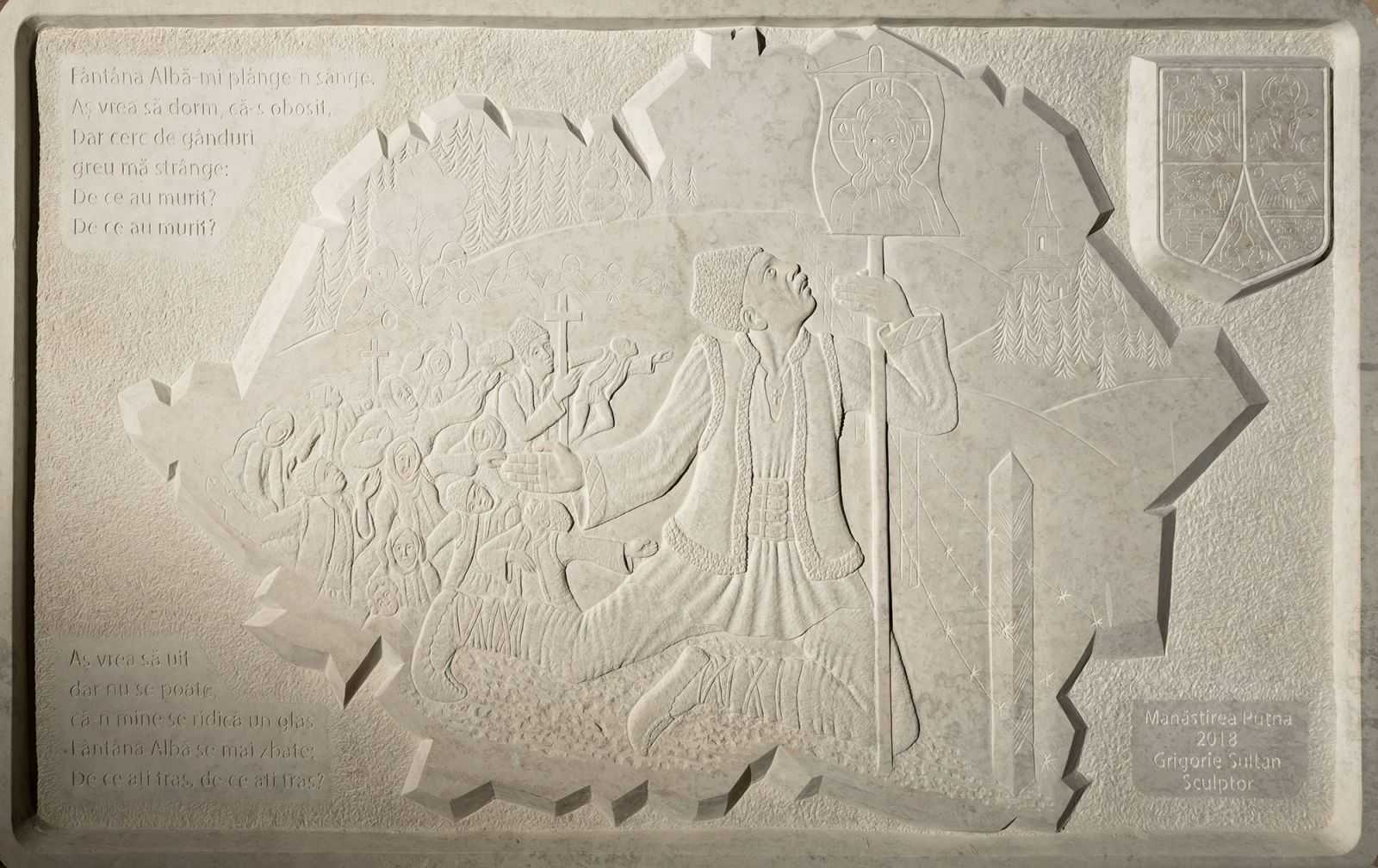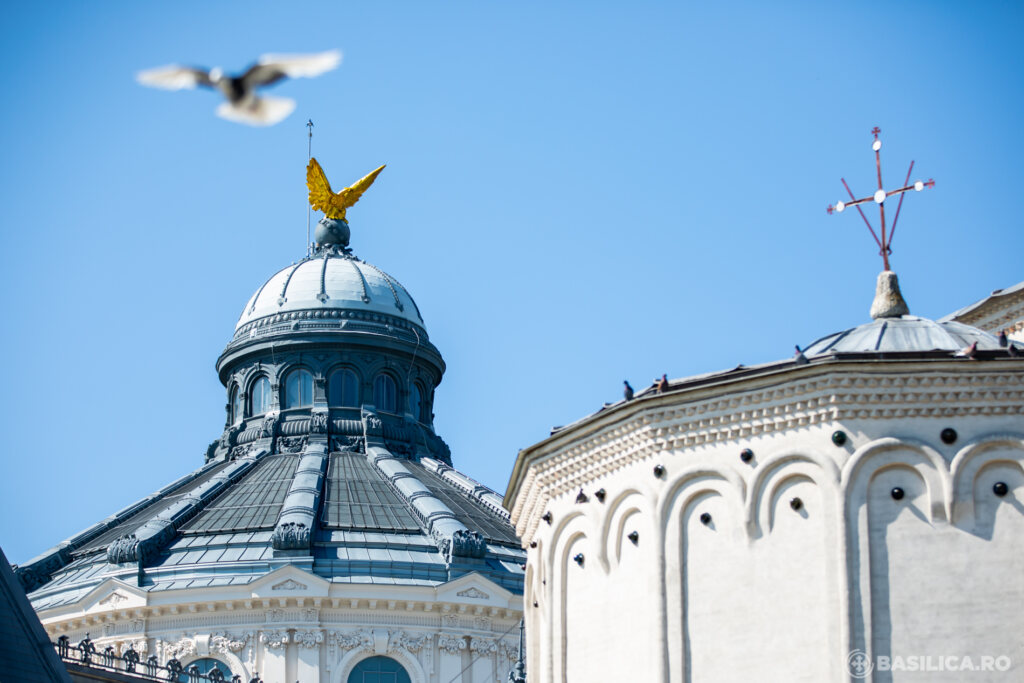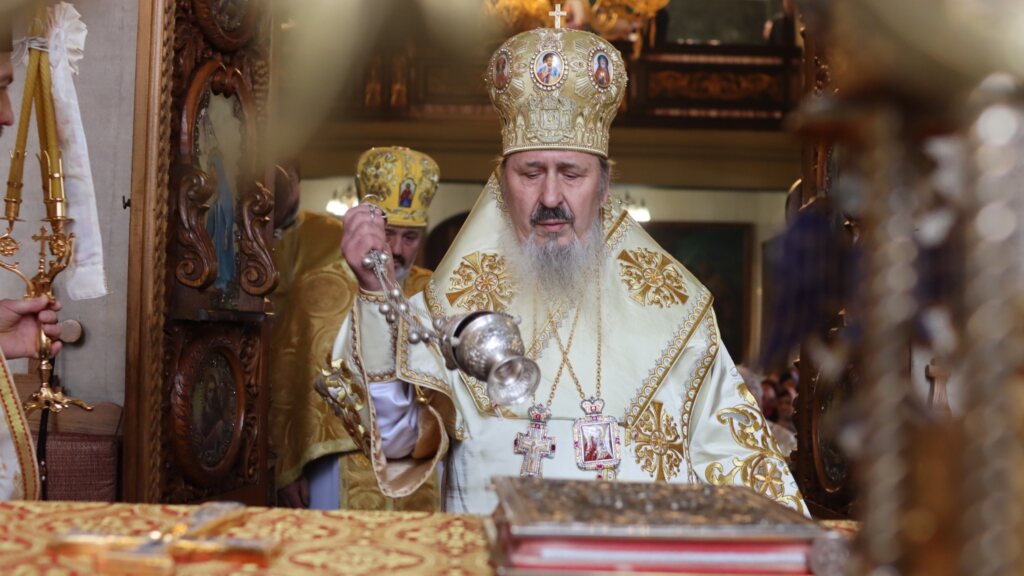“It was unfair and improper that 50 out of the 80 years since the Fântâna Albă massacre were years of silence,” said His Grace Assistant Bishop Damaschin of Dorna on Thursday during a memorial service held in memory of the approximately 3,000 Romanians killed on April 1, 1941, in the Varnița forest.
The Assistant Bishop to the Suceava Archdiocese officiated the service at the Memorial Gate “Golgotha of the Nation – Fantana Alba” at Putna Monastery.
“For half a century, they wanted us to forget everything. The newspapers from Bukovina wrote something in the first years after 1941; rhapsodists and poets mourned in doina and verses, but, officially, even so far at the state level, no one admitted the guilt for what happened that spring, but also the months and years that followed. On the contrary.”
“Today, some are trying to change history and to present deliberately and maliciously the events that took place 80 years ago in a new light, not only different but even opposite to the real events,” the assistant bishop pointed out April 1, 2021.
“And yet, the locals, the descendants of the victims or the few survivors of the more than 3,000 people employed on the way to Romania have not forgotten. The priests remembered in their prayers names and names of those who were reaped by the bullet or by famine or by the cold in the deportations that followed.”
“Today we cannot be there, on the place where so much blood flowed, but from here, from Putna, we light a candle of gratitude and a light of remembrance once and again.”
After the memorial service, at 18:00, all church bells in the Archdiocese of Suceava and Rădăuți rang in honour of the Fântâna Albă martyrs.
“We will immediately ring all the bells from all the churches in Bukovina so that their sound can be heard not only by the brothers from beyond, but also by those who would dare to be descendants of those who ruled 8 decades ago though oppression, by fear, and through inhumanity,” assistant bishop Damaschin noted.
“And we do this so that, due to our inattention and negligence, silence will not spread again, and the sacrifice of the Romanian brothers in northern Bukovina will be forgotten, because it is unjust and improper, not only before the people but especially before our conscience and before God.”
“Therefore, with longing, reverence and humility, we will say as long as we will live: May their memory be eternal! Amen.”
The Memorial at Putna includes:
- A monumental gate.
- A stone crucifix.
- Spaces for laying flowers and lighting candles.
- Inscriptions with the villages’ names from where those killed in the 1941 massacre started to Romania.
- A fountain.
The meaning of the Memorial: “The gate is the passage; the crucifix marks the place of the sacrifice and, placed in front of the gate, shows that those killed fell in front of the place of passage in beloved Romania, and the fountain is the symbol of life that springs from their sacrifice.”
© Putna Monastery
Follow us on Twitter: @BasilicaNews






